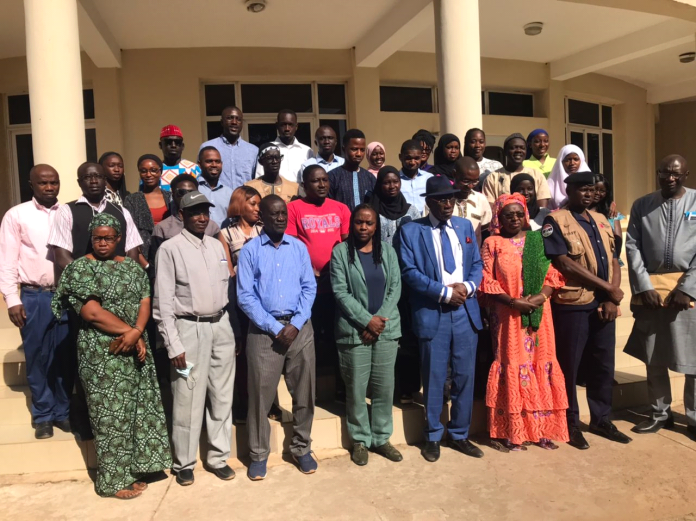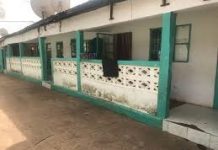By Yankuba Jallow
Alieu Momar Njai, the Chairperson of the Independent Electoral Commission (IEC) has reassured Gambians of free, fair and transparent local government elections.
Chairperson Njai, while addressing a forum of journalists and civil society actors, said the Gambia’s electoral process is second to none because of how it is conducted, and dismissed the allegations that the Commission gives voter cards to non-Gambians to vote in the country’s elections. He reaffirmed his Commission’s resoluteness in ensuring free and transparent elections as always. That at every level of the electoral process, there is transparency, and that results are pasted at all polling stations after counting.
“As far as we are concerned, we believe and we know we are doing the elections in a free, fair and transparent manner. The process is fully transparent because party agents are involved in every process,” he said. He further explained that political parties and candidates send agents to witness the voting, counting, tabulation and announcement of results, and that the Commission ensures they registered people who came with valid documents for registration. He said party agents are always engaged in every process of the elections starting from registration to the end.
On the voting process, Mr. Njai said the process is such transparent and engage such that the ballot drums are opened in the presence of party agents; to ensure they are empty before voting starts after which they will be sealed and when voting commences. He explained that the seals have numbers which party agents record and at the end of the voting, all party agents will confirm that the box remained sealed as they were in the morning, by recording the seal digits again before the drums are opened. He said the drums are opened in the presence of party agents and observers, and counting is done openly in their presence. That after the counting, party agents will confirm the results and sign them.
Chairperson Njai hinted that the Commission will push for a shift from the archaic marble system to the paper ballot system. He said a candidate for council elections is required to make deposit of D1,250 and mayoral/chairperson candidates are required to make a deposit of D2,500. Chairperson Njai decry that a ballot drum costs about D2000. He detailed that there are over a thousand polling centers in the country and many candidates are expected to contest in the forthcoming elections.
“To pay for the ballot drums is a nightmare,” Njai said, and cited an election he covered in Nigeria where over 60 candidates contested and all their names/photos were on one paper.
“We are the only country in the whole world using this archaic system,” Njai said.
As the Gambia elects Ward Councillors, Area Council Chairpersons and Mayors in April and May this year, the Council election for Ward Councilors are scheduled by the IEC for the 15th of April 2023, while the mayoral or chairperson elections will take place on the 20th May 2023. The eight local government areas in the Gambia are Banjul, Kanifing, Brikama, Kerewan, Mansakonko, Janjanbureh, Kuntaur and Basse. Voting as usual will start from 8 am to 5 pm and counting will be done on the spot, at all polling stations.
The key days for the local government elections scheduled as follows: February and March – Period for Accreditation: 14th to 27th March, 2023; Nomination of Candidates- 31st March to 13th April 2023; Campaign period: from 31st March to 7th April 2023; Replacement of voting cards from 11th April 2023; Election Observer Briefing from 14th April.





















